How to Connect Webhooks with Google Sheets
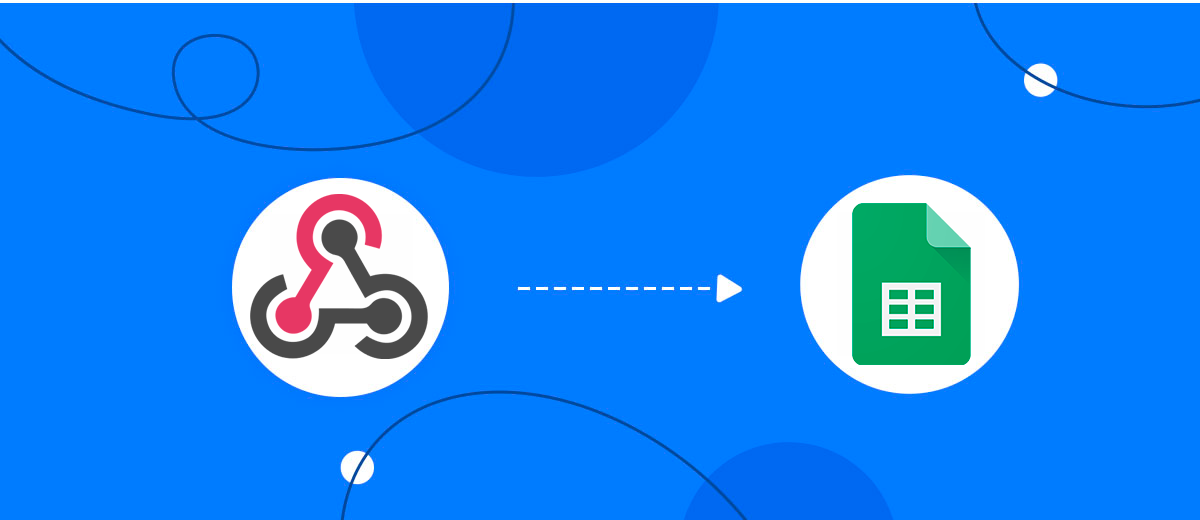
The integration will allow you to receive data from different systems that support transfer via Webhooks and transfer them to GoogleSheets. For example, when a new order appears on your site, a new row will be added. This will allow you to efficiently automate your workflows and save a lot of time by eliminating the need to manually add each row to the table.
Let's go through the entire Webhooks with Google Sheets setup steps together!
Navigation:
1. What will integration Webhooks with Google Sheets do?
2. How to connect Webhooks account?
3. How to connect Google Sheets account?
4. How to setup data transfer from Webhooks to Google Sheets?
5. An example of the data that will be sent to your Google Sheets.
6. Auto-update.
To start setup new connection, click "Create connection".
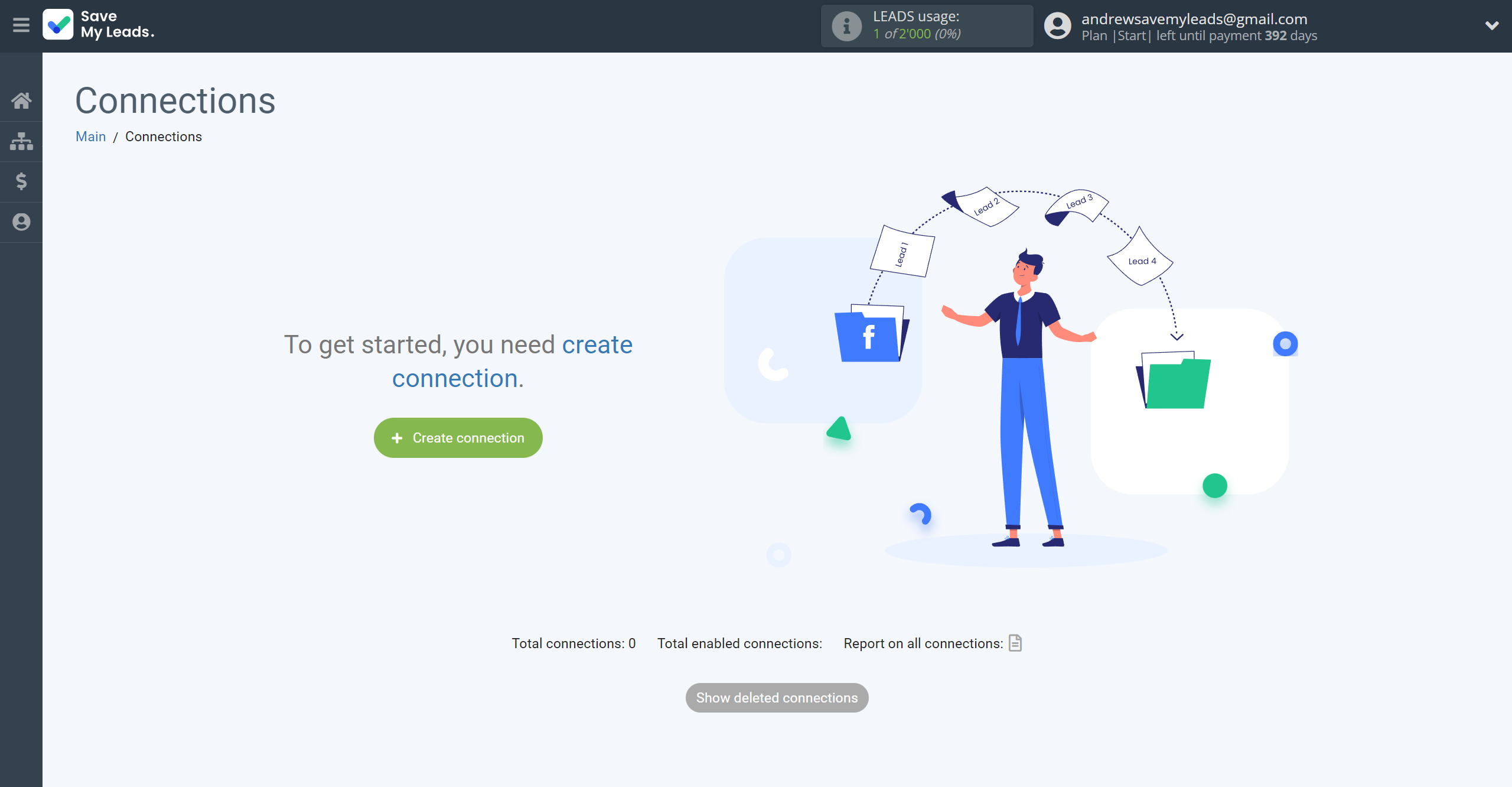
Select a system as the Data Source. In this case, you must specify the Webhooks.
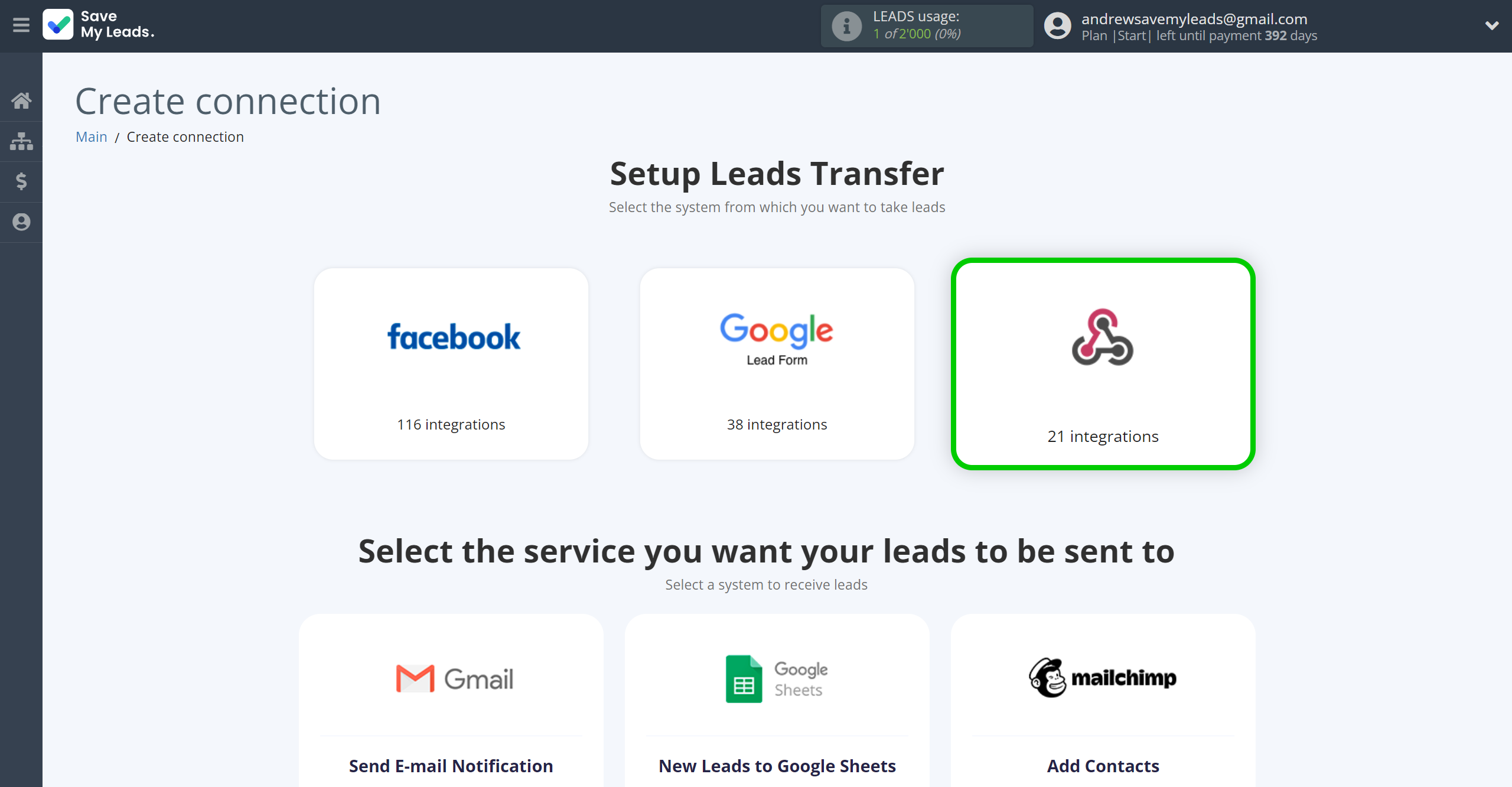
Next, you need to specify the system to which the data from the Webhooks will be transferred. In this case, you must specify Google Sheets.
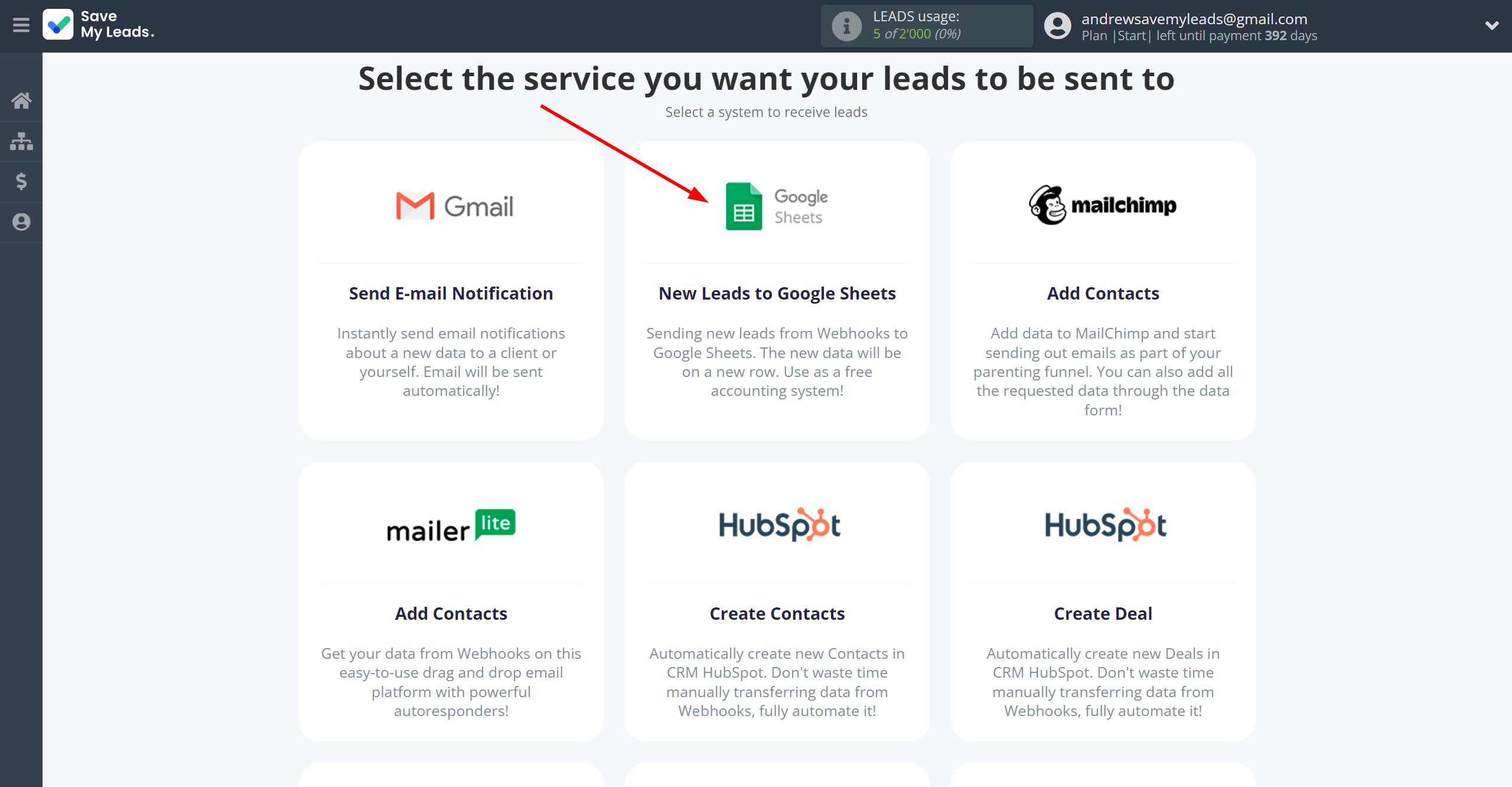
The next step is to select Webhooks account from which SaveMyLeads will get the data.
If there are no accounts connected to the system, click "Connect account".
If desired, you can change its name or simply click "Continue".
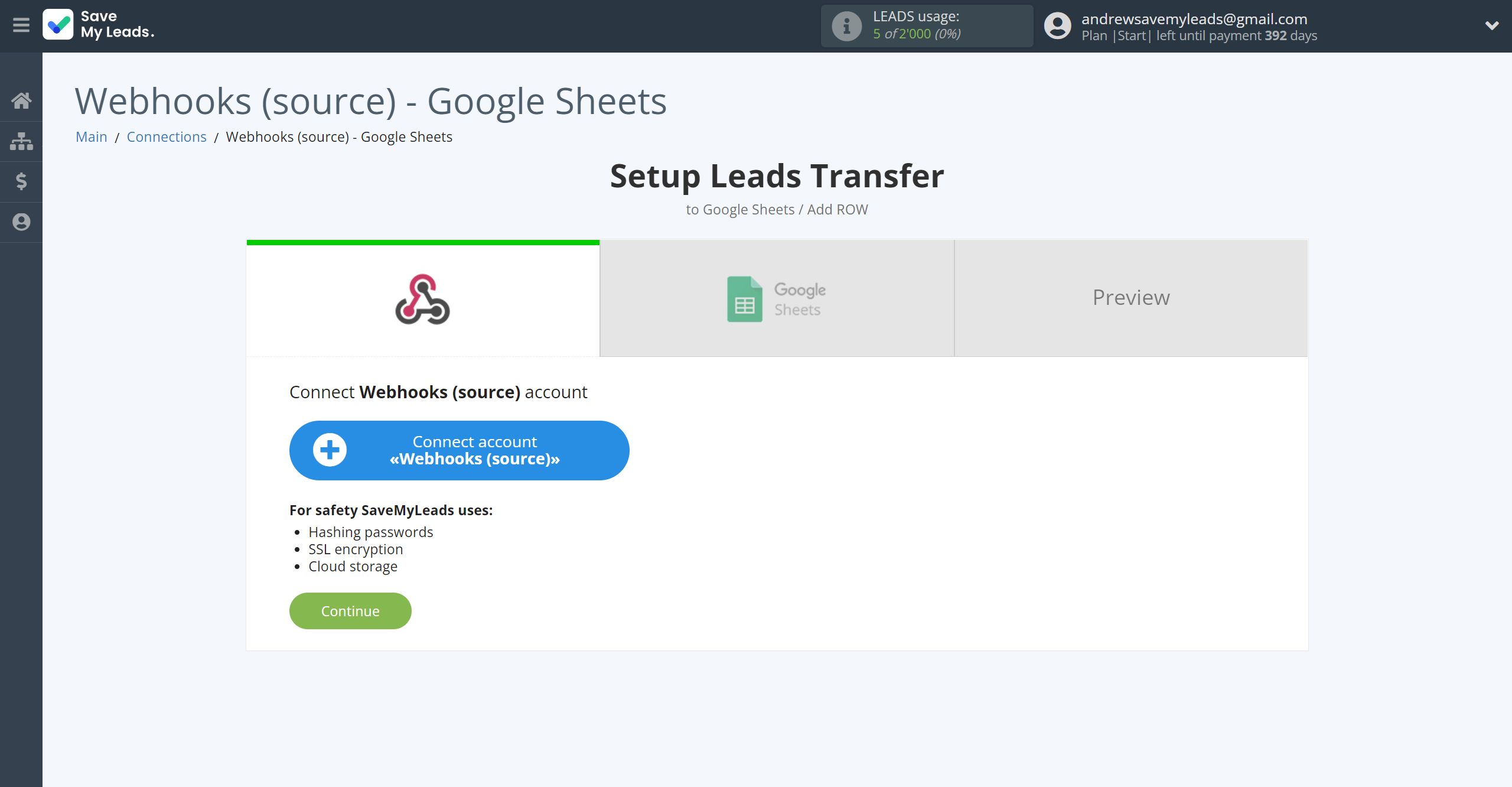
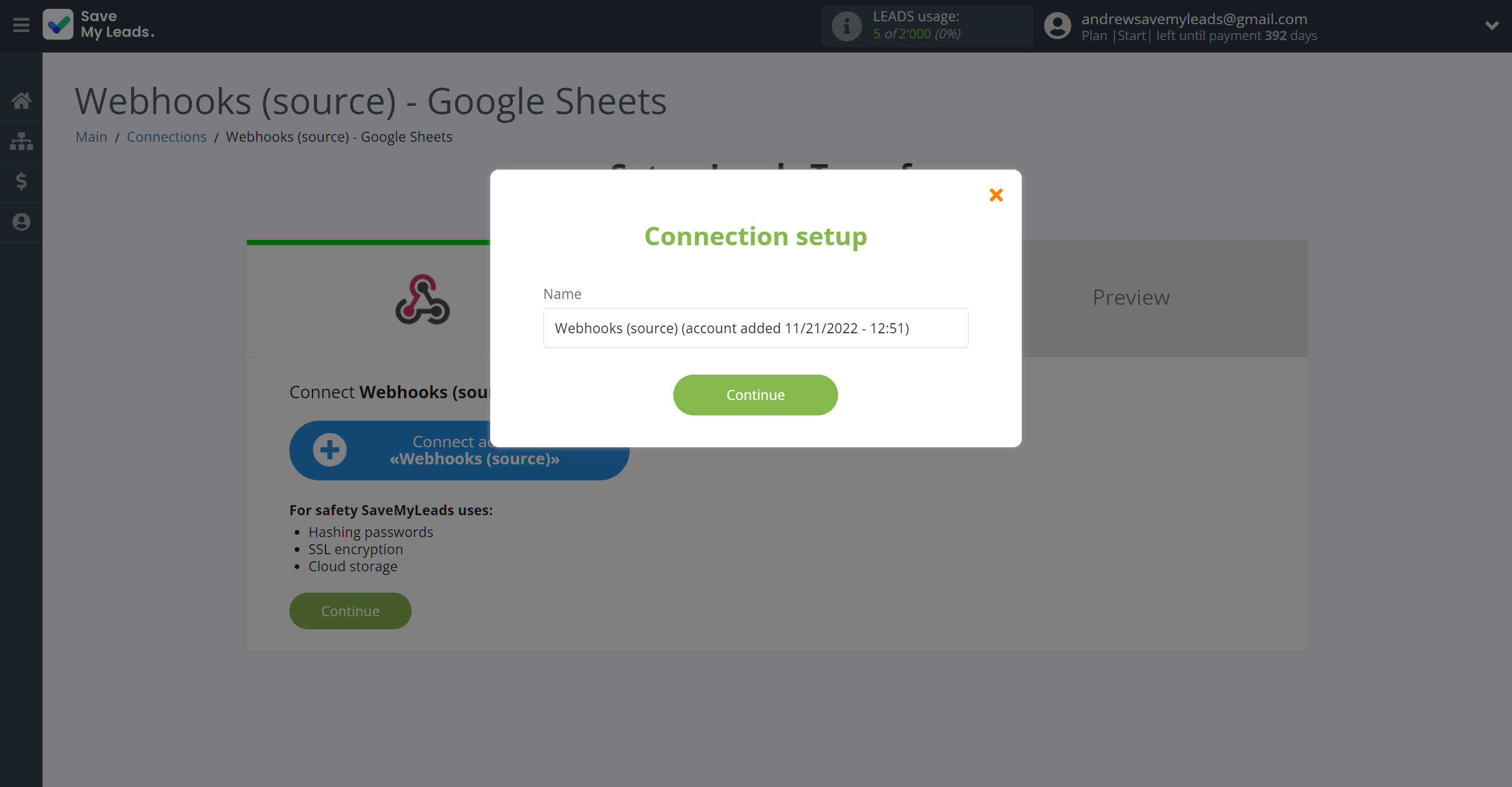
When the connected account is displayed in the "active accounts" list, select it.
Attention! If your account is in the "inactive accounts" list, check your access to this account!
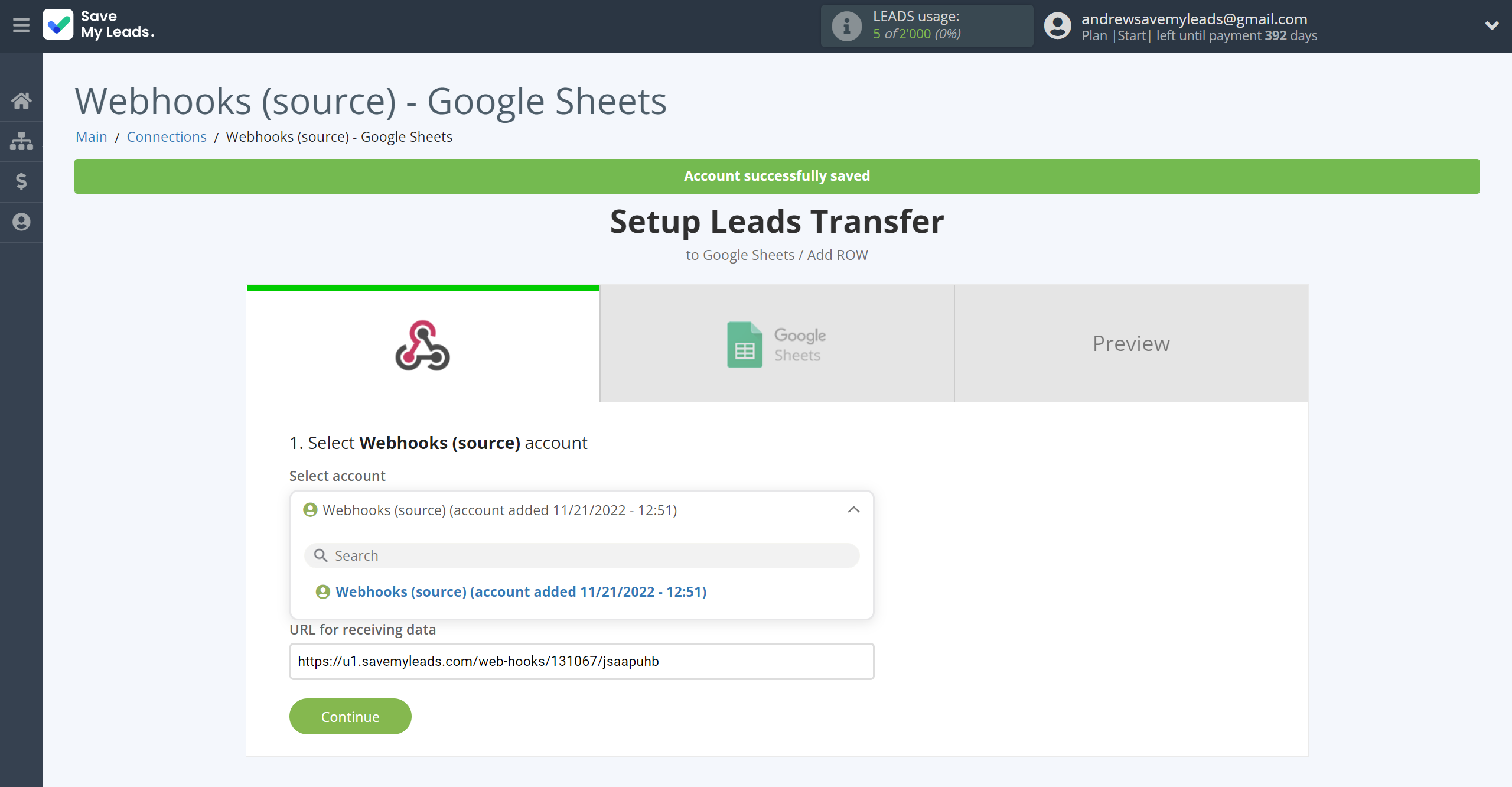
Next, you need to copy the "URL for receiving data", click "Continue" and go to your account, that supports data transfer via Webhooks.
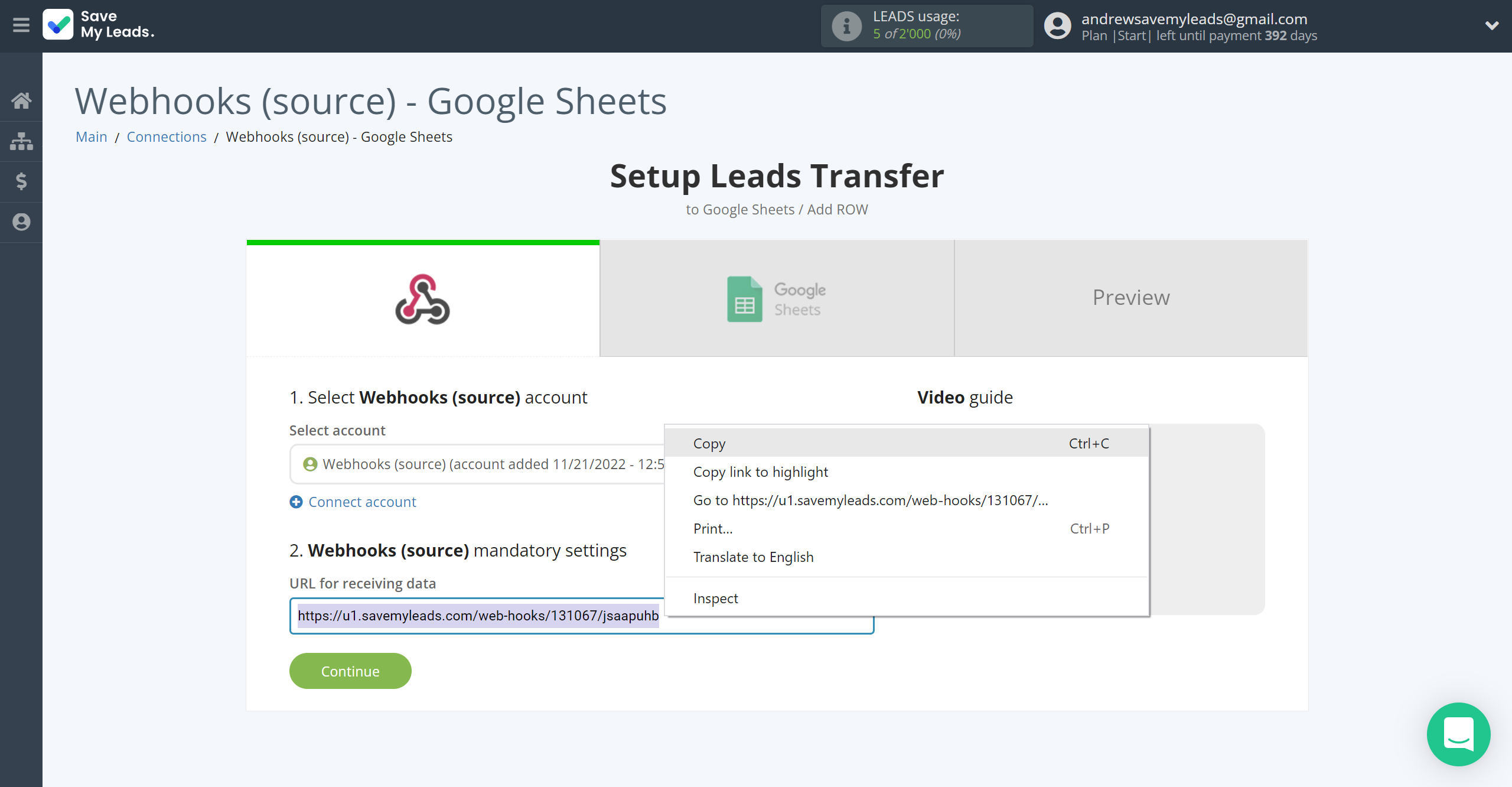
For the example work in this help, we will copy this link and go to the Kajabi account, setup an publication for transferring data via Webhooks.
You can do the same on any other system that supports Webhooks.
Go to the "Sales" - "Offers" tab, then select the publication from which you want to Data Destination.
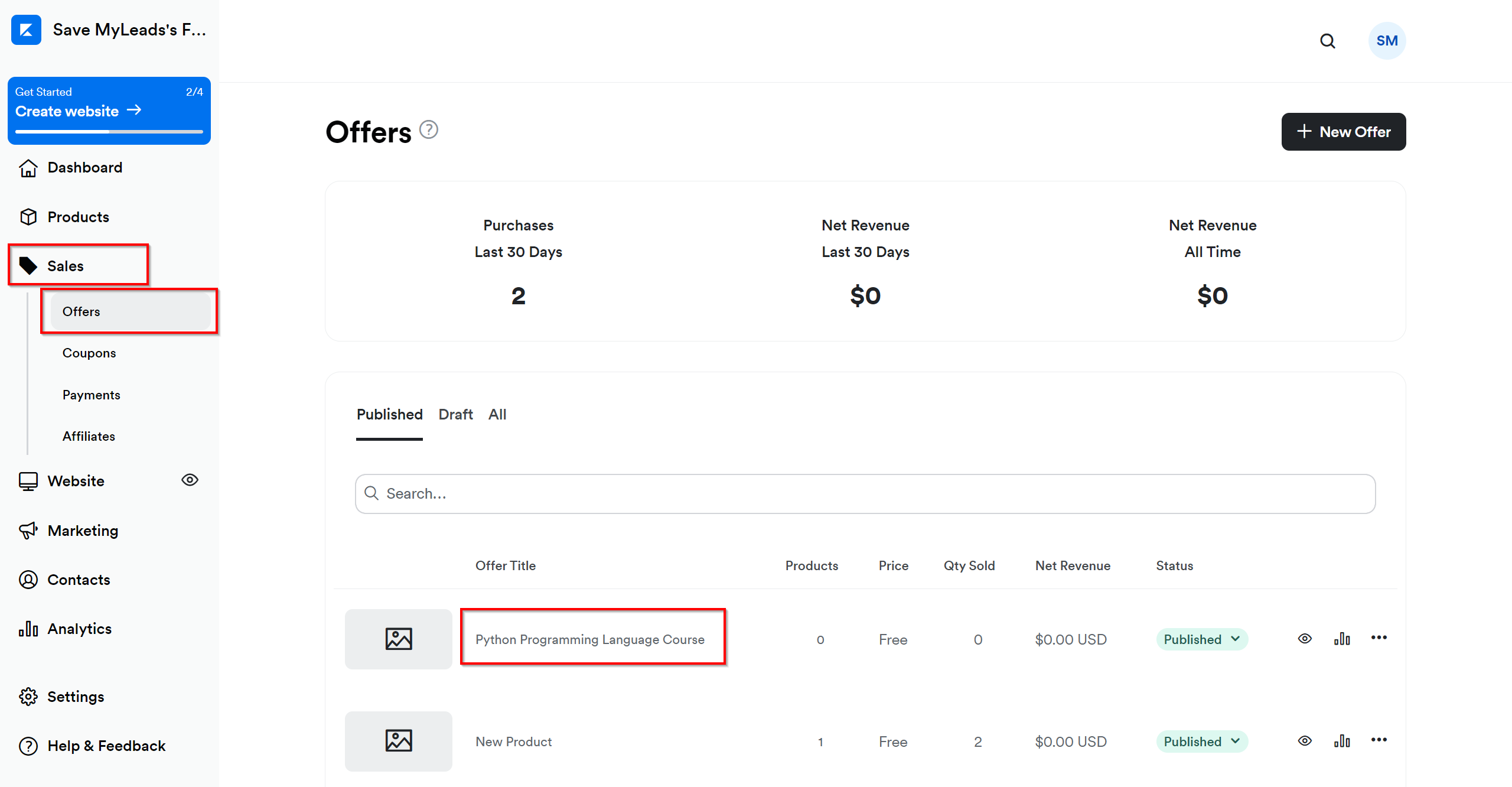
Click on three dots and select "Webhooks".
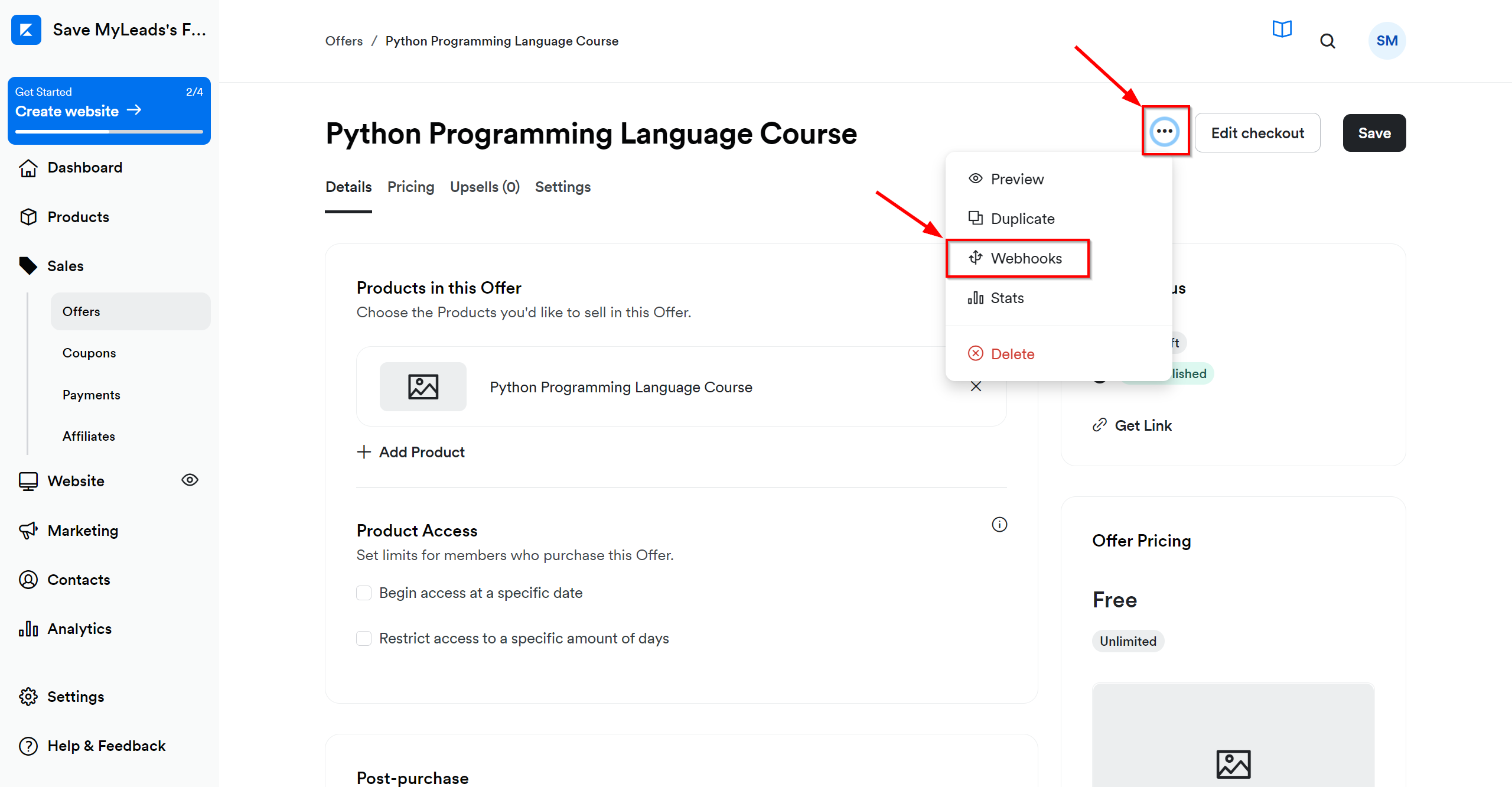
In the "Purchase Webhook URL" field, paste the link you copied earlier from the SaveMyLeads system. After that, click "Send Test" to create a test event in the Kajabi system.
If you don't see the "Send test" button, click "Save" and go to the "Webhooks" section again.
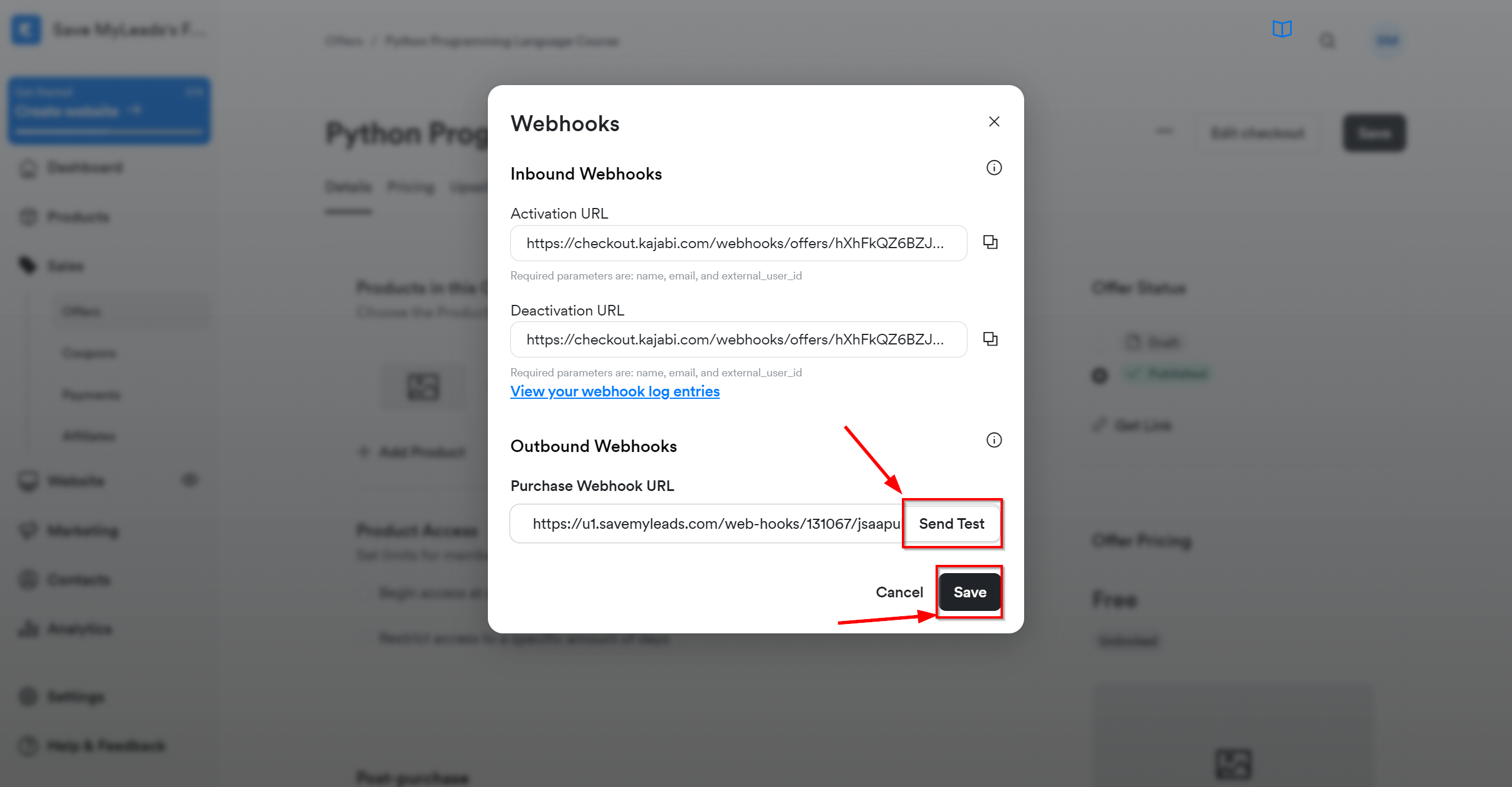
The next step is to select a Google Sheets account to which data will be sent.
If there are no accounts connected to the system, click "Connect account".
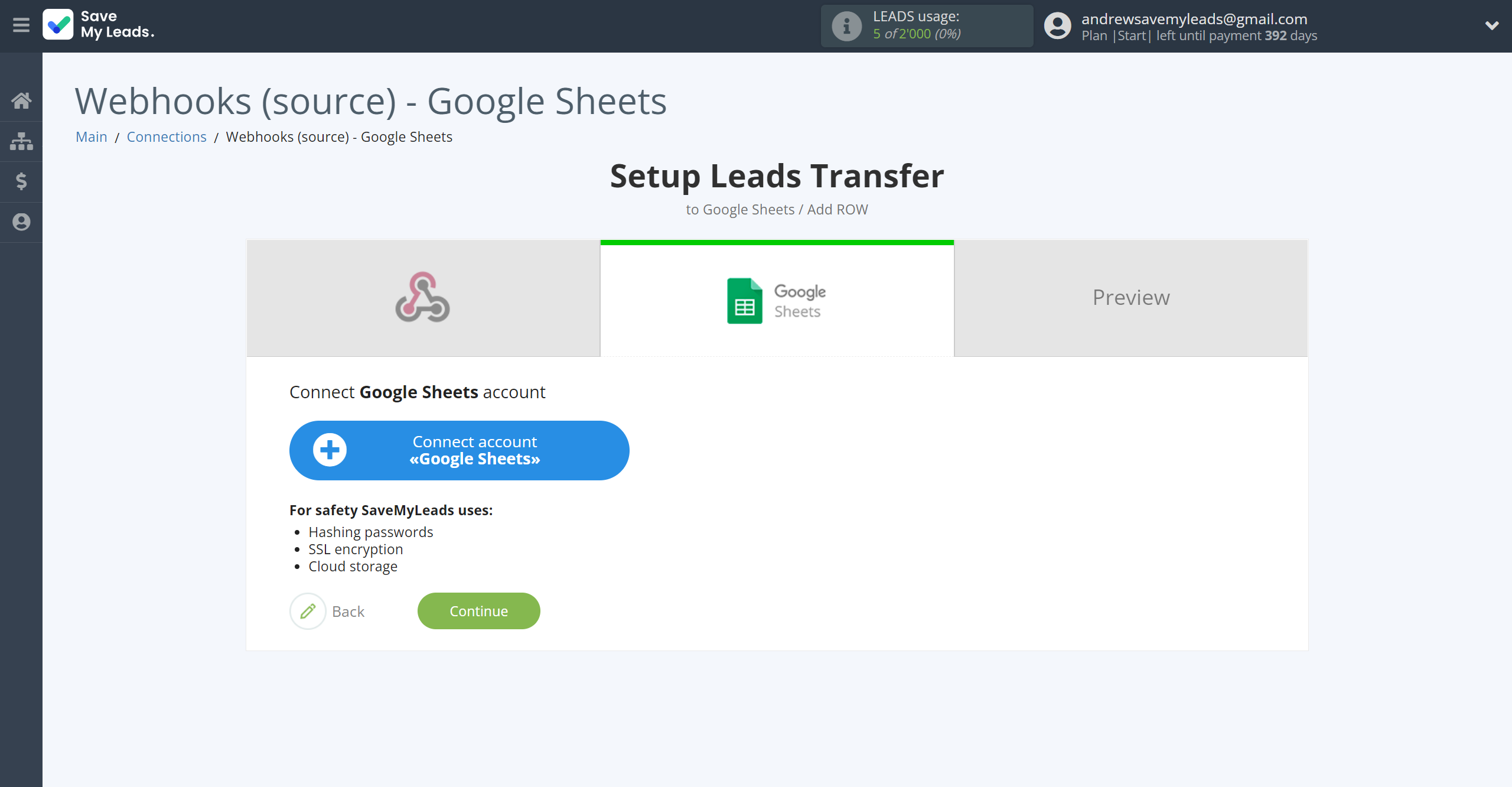
Enter your Google Sheets account login and password and give SaveMyLeads permission to work with this account.
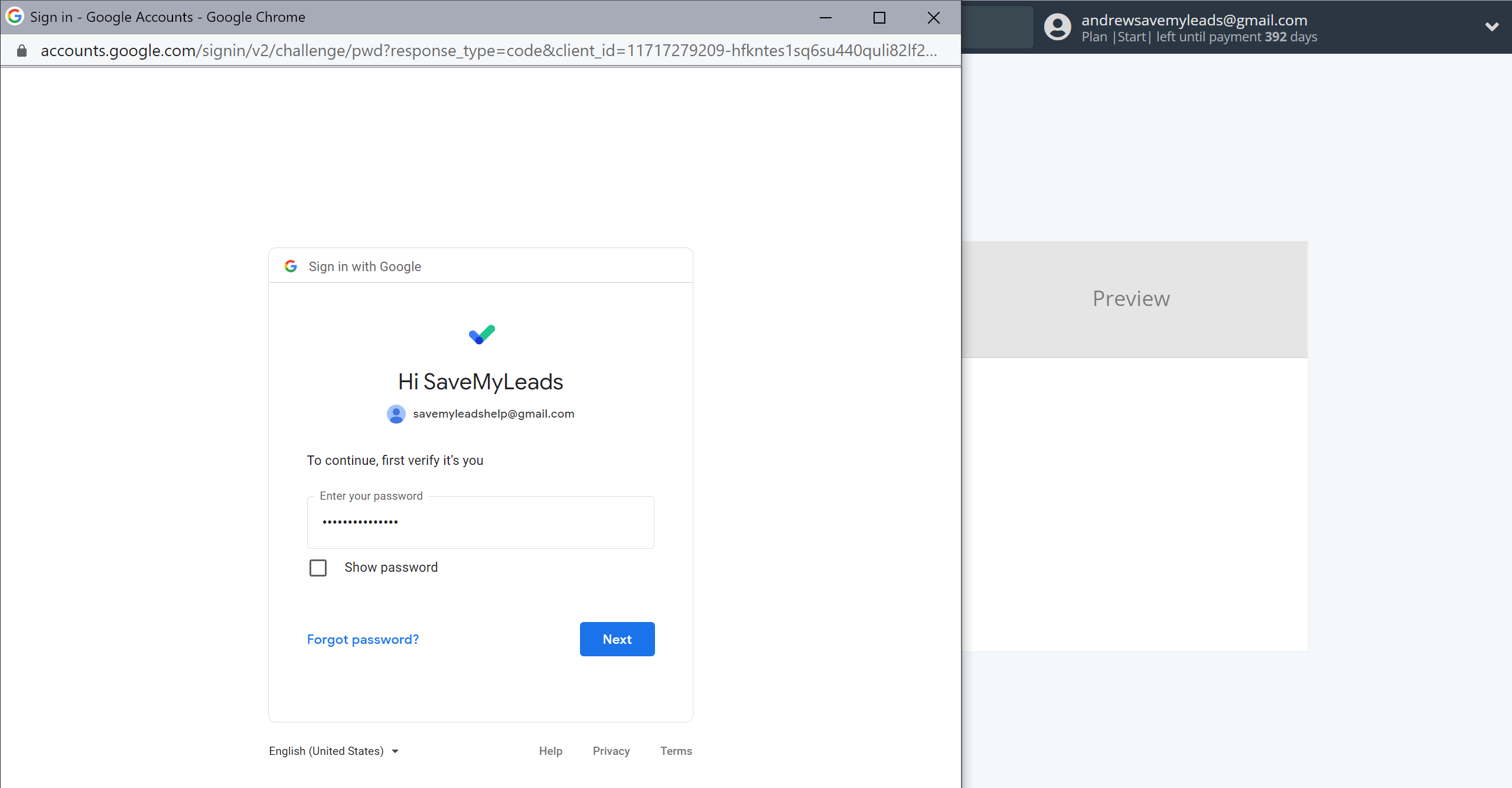
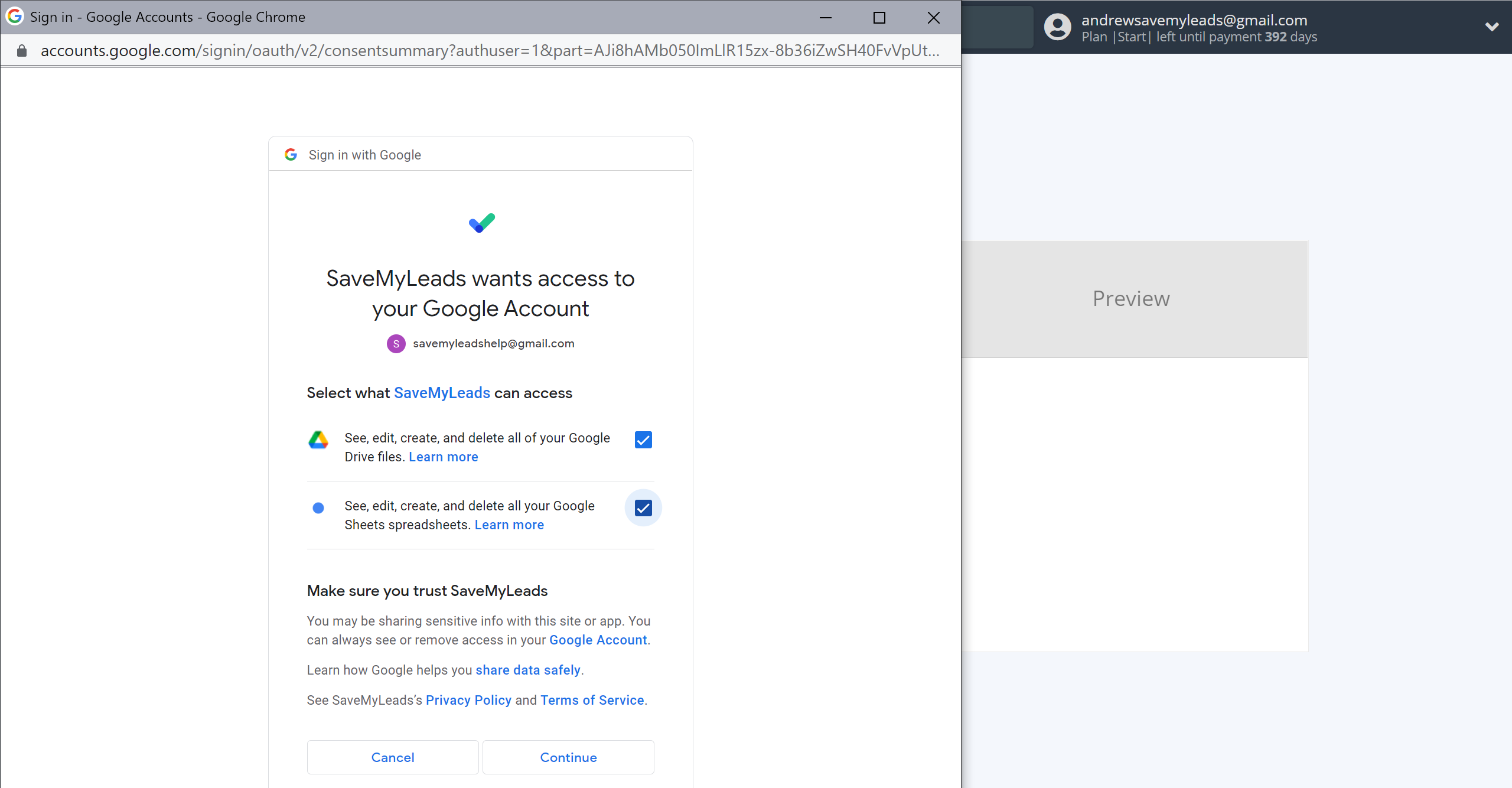
When the connected account is displayed in the "active accounts" list, select it.
Attention! If your account is in the "inactive accounts" list, check your access to this account!
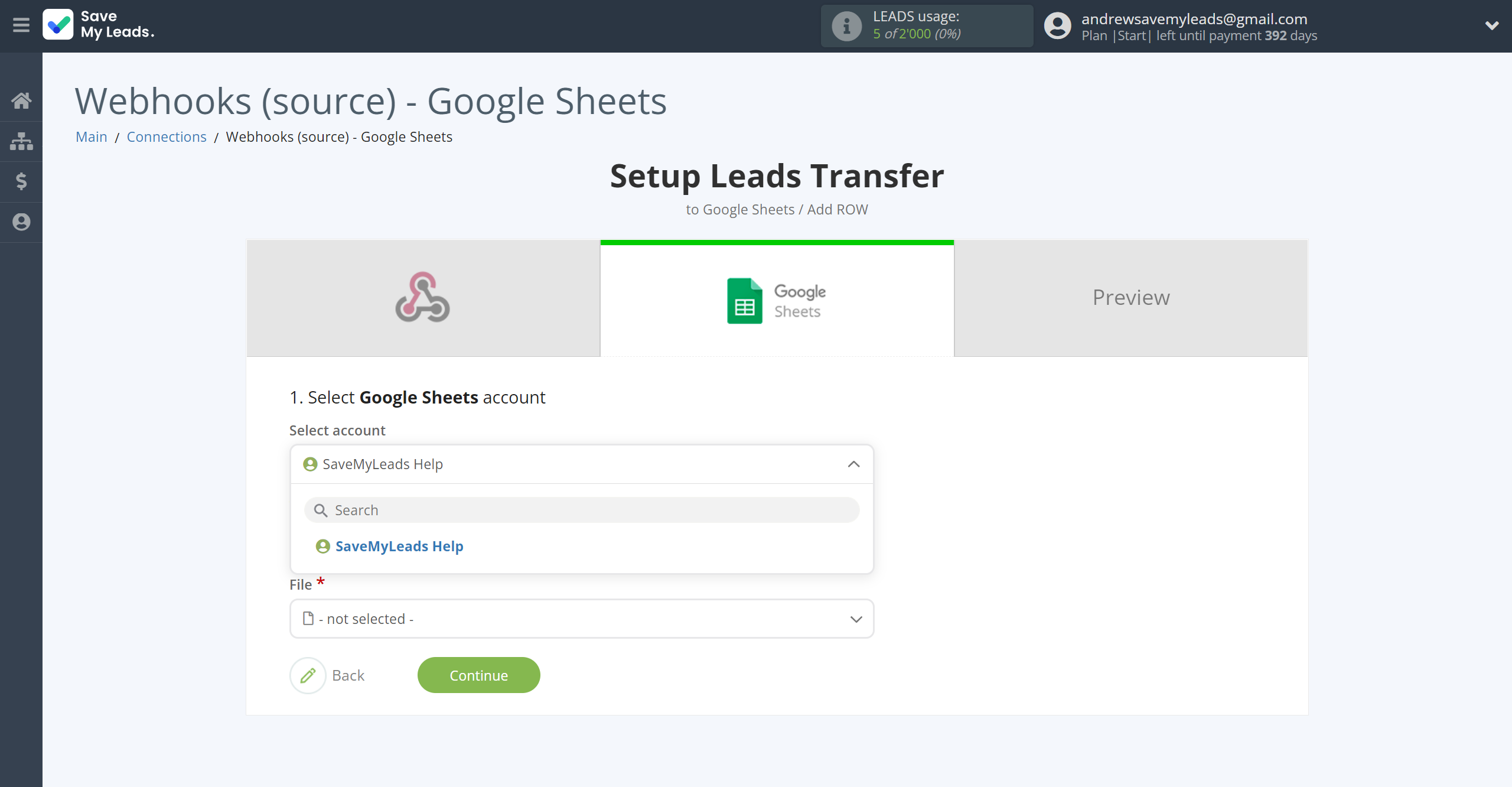
Now you need to assign variables from the Data Source system to the columns of the table you need.
In this section, the fields will be assigned according to the template. You can completely change it or leave it as is.
To add a variable, click on the column field and select the desired variable from the dropdown list. Please note that you can use not only Data Source variables, but also manually entered data.
Click "Continue" when you're done with assigning fields.
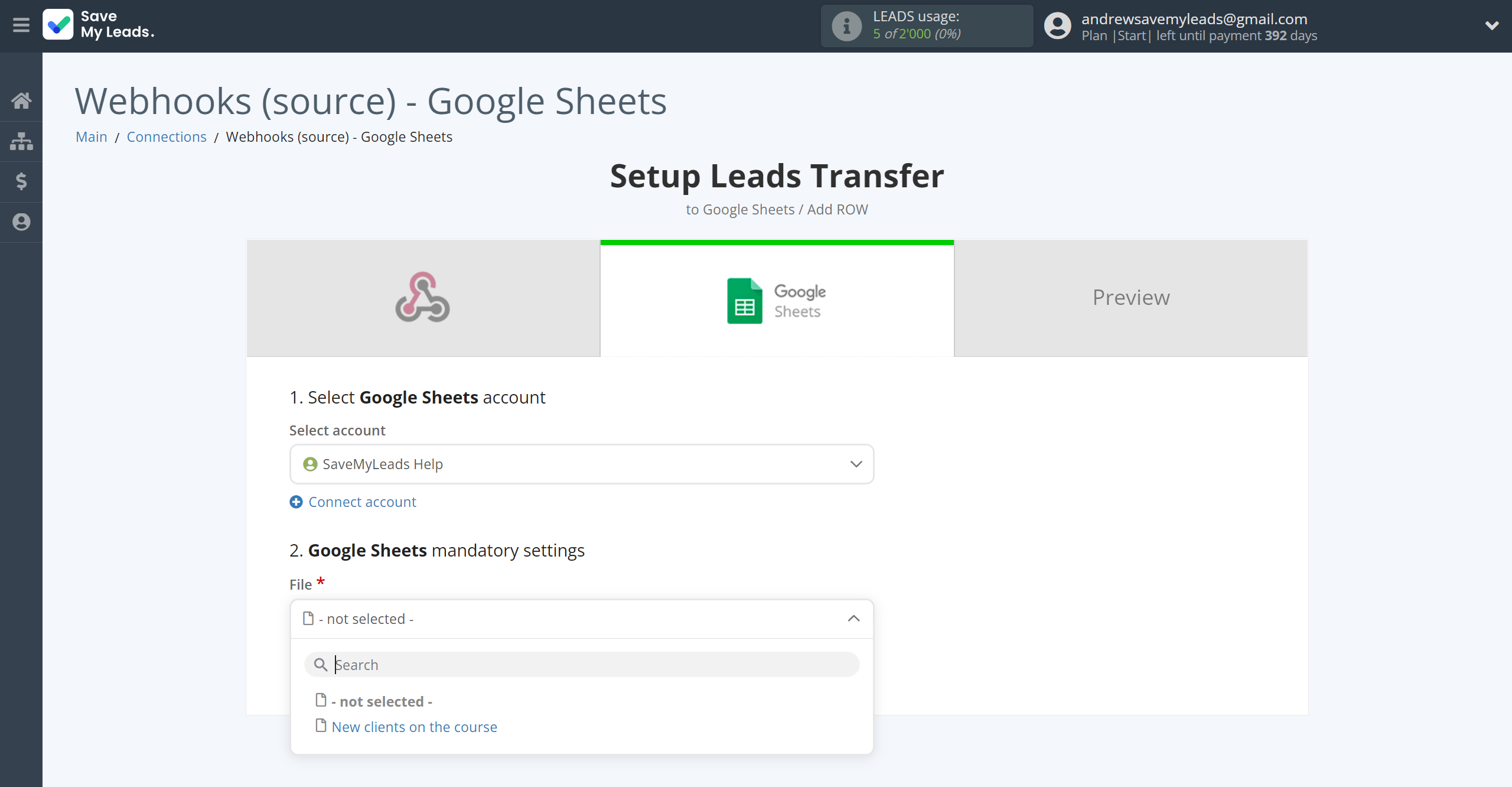
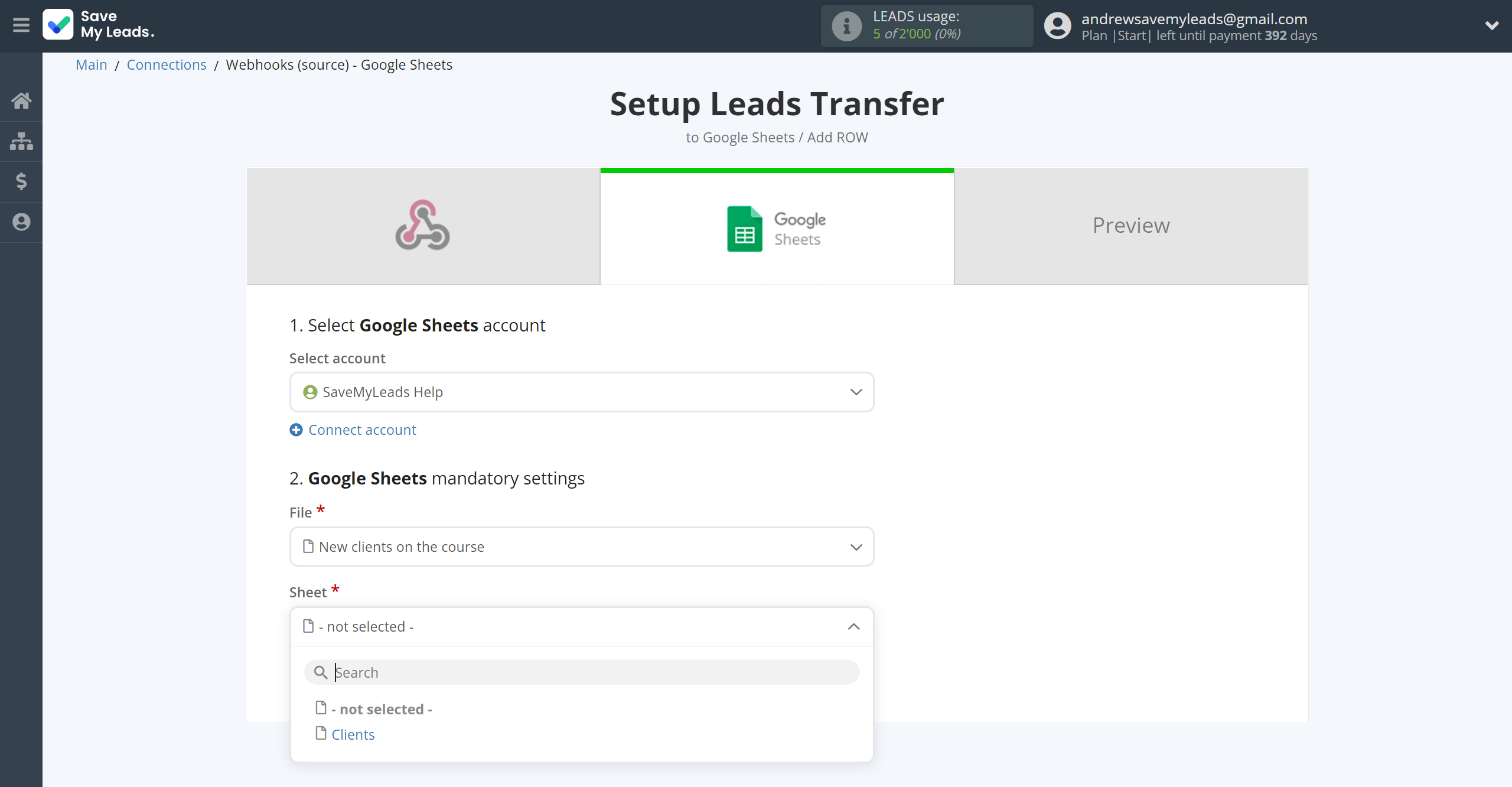
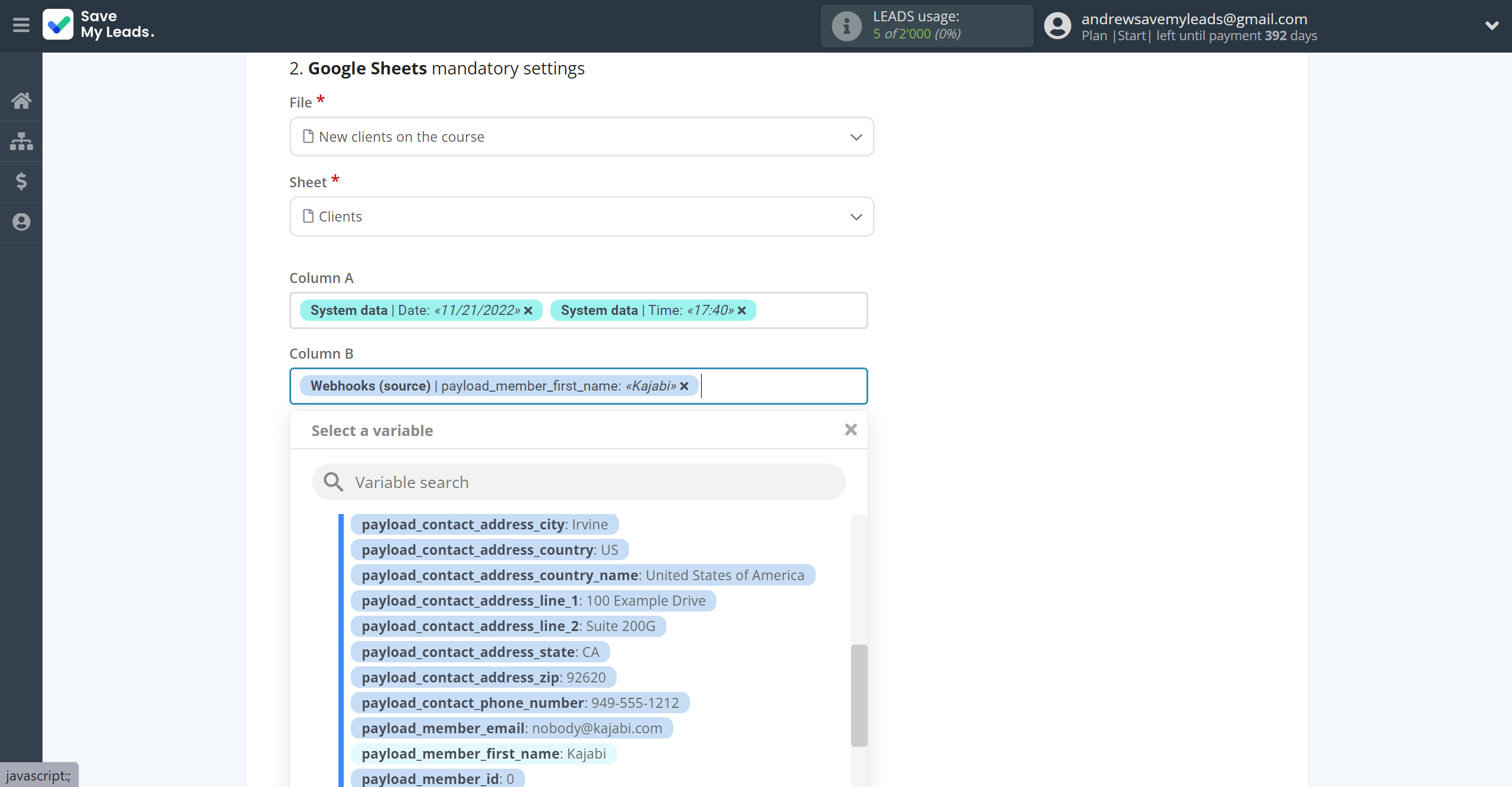
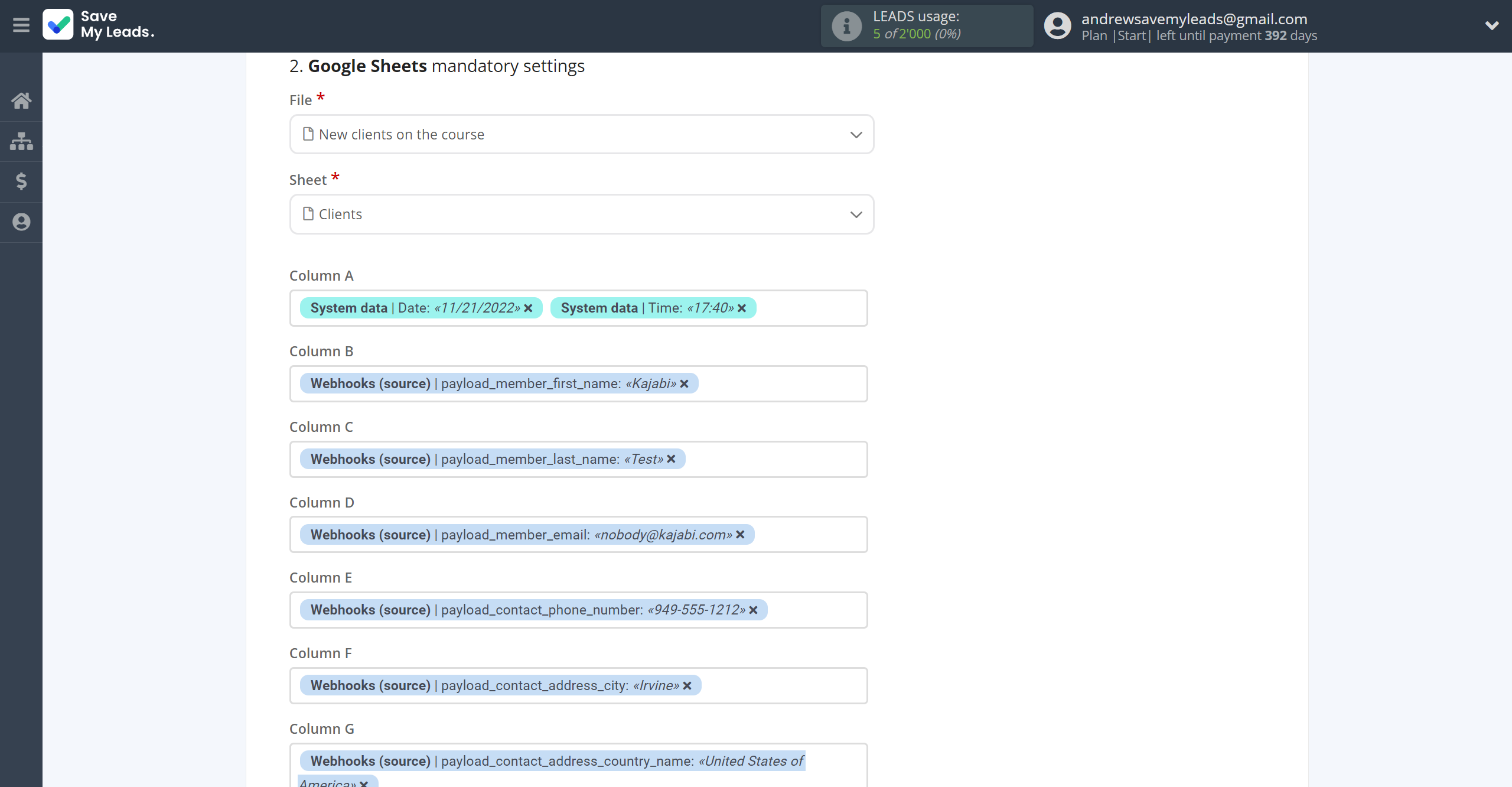
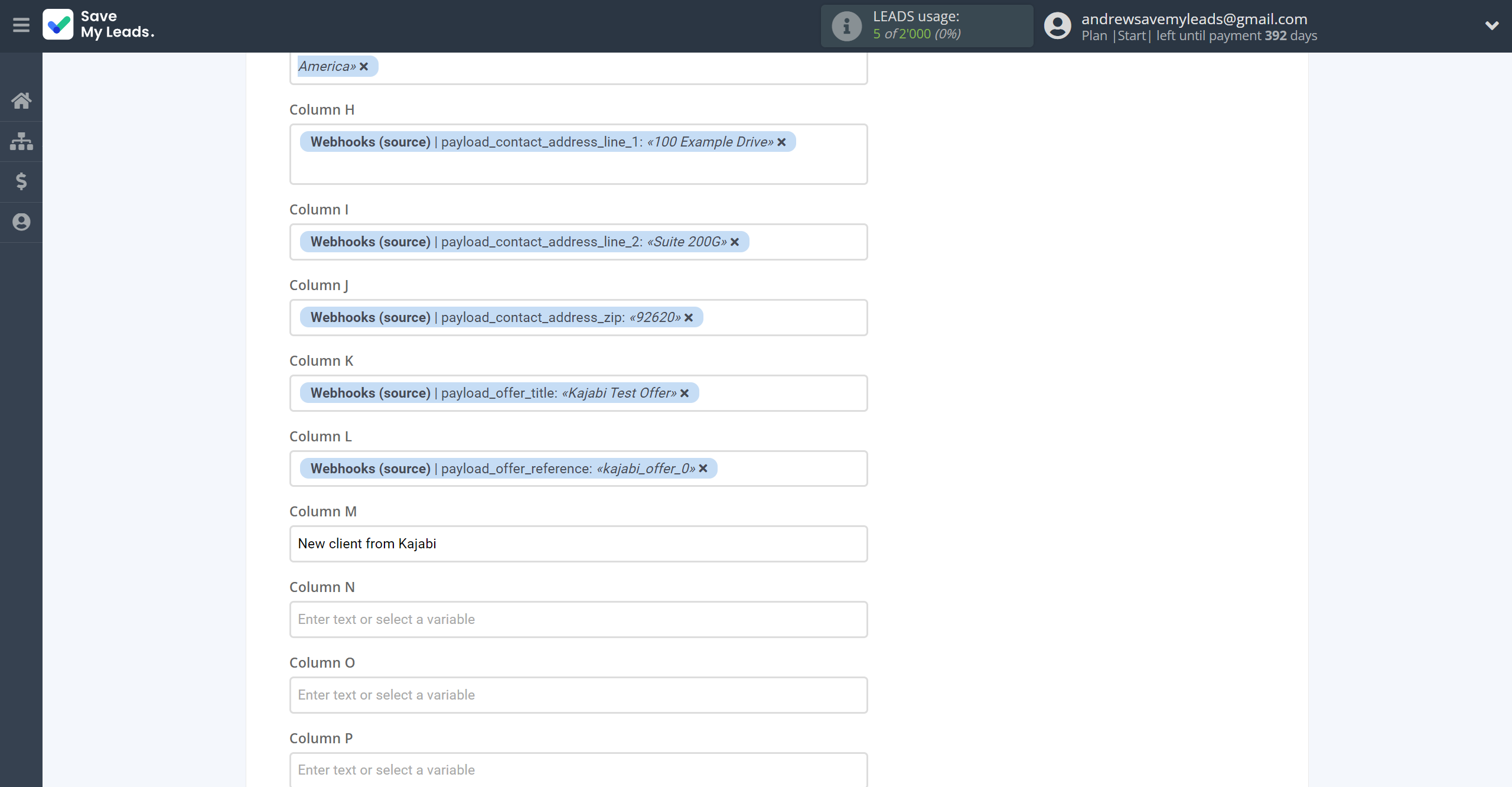
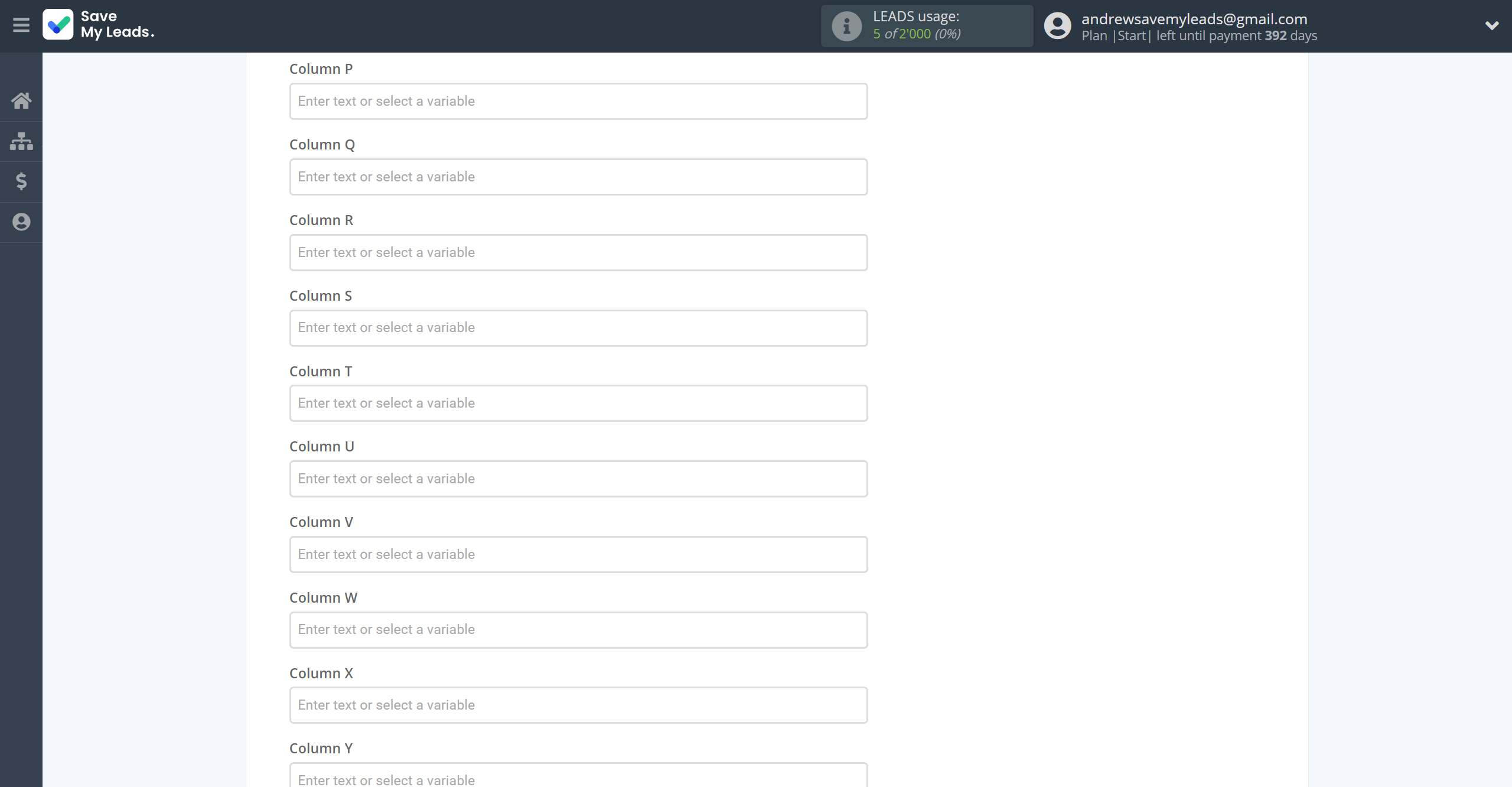
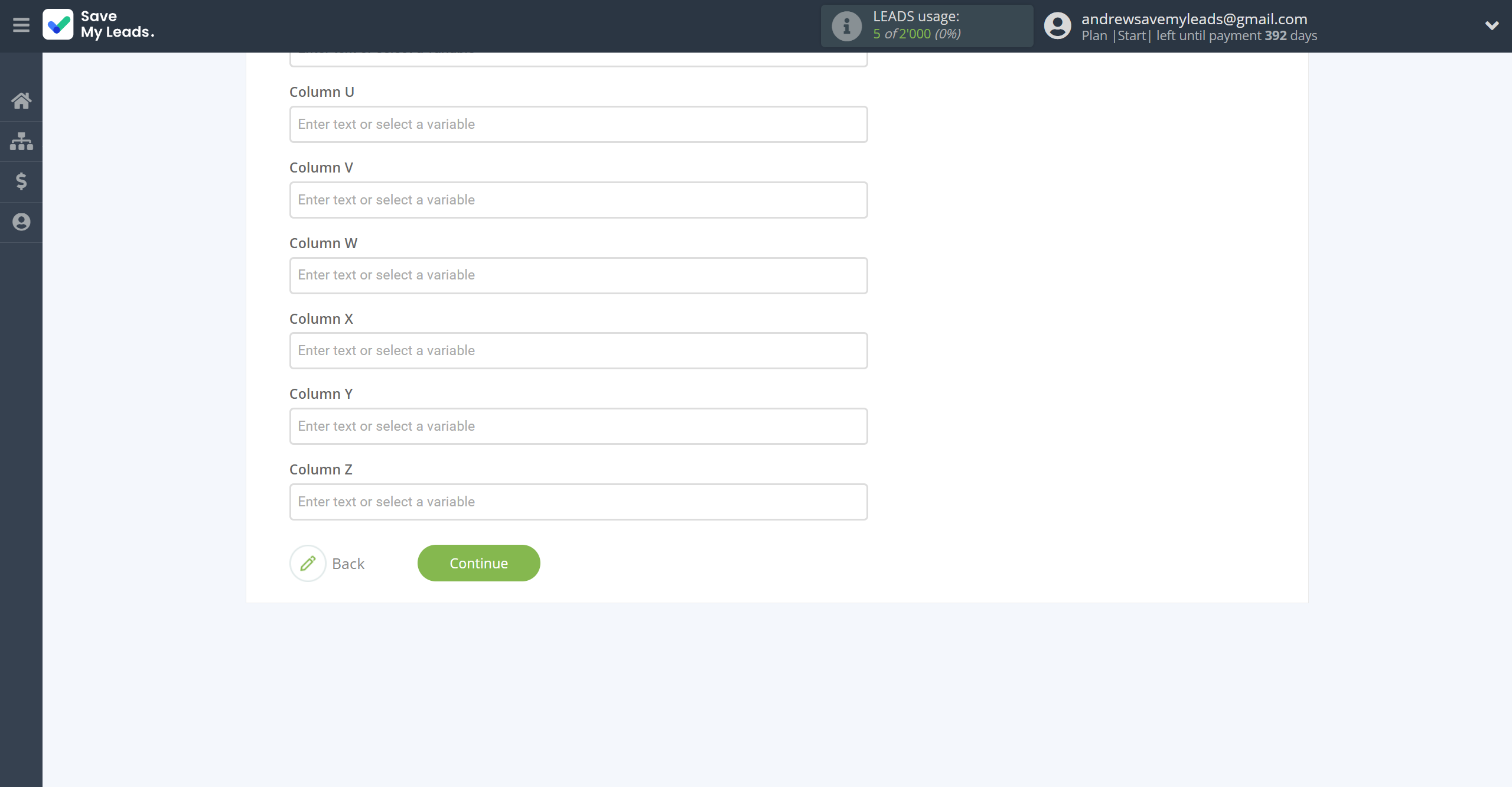
Now you see the test data to send to Google Sheets.
Click "Send test data to Google Sheets" and go to Google Sheets to check the result.
If something does not suit you, click "Back" and go back one step.
In order for data from Webhooks to be transferred multi-venously to Google Sheets, click "Finish setup".
Note! If you get an "HTTP ERROR 500" error when submitting test data, it means that your table has too many rows. In this case, you need to transfer data to another table or sheet.
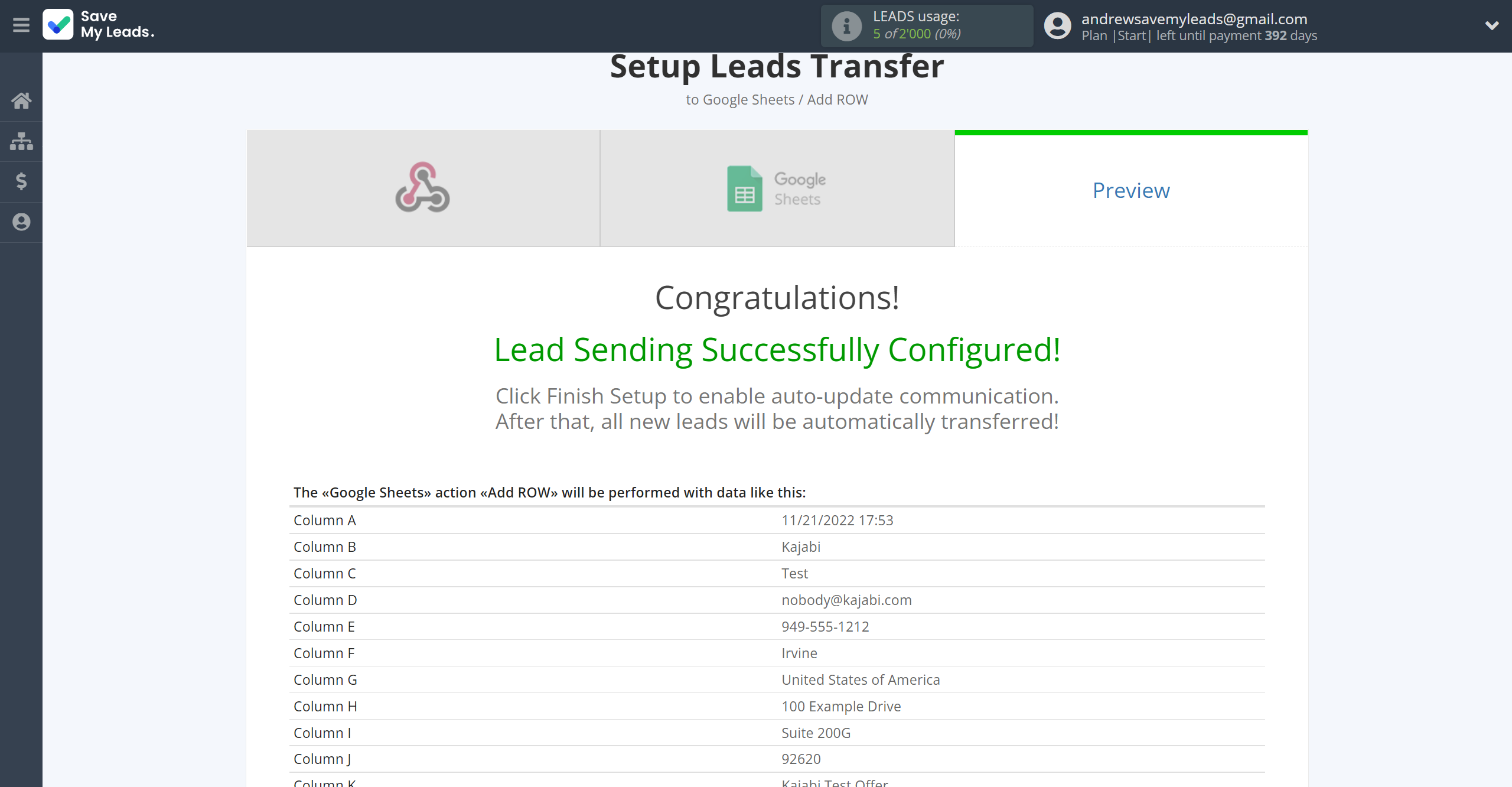
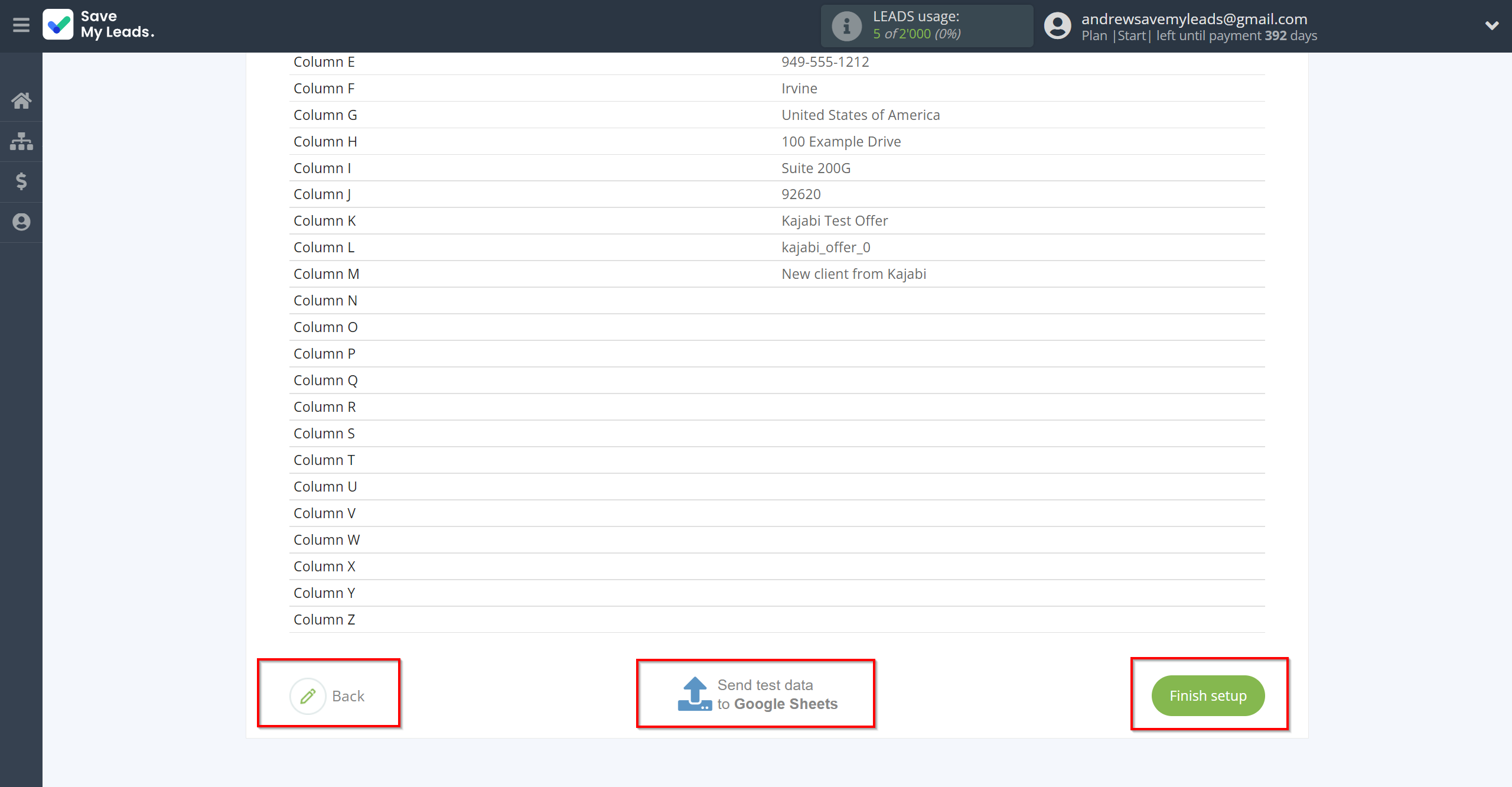
On the main screen, click on the gear icon to select name of the connection and select a group for it, if necessary.
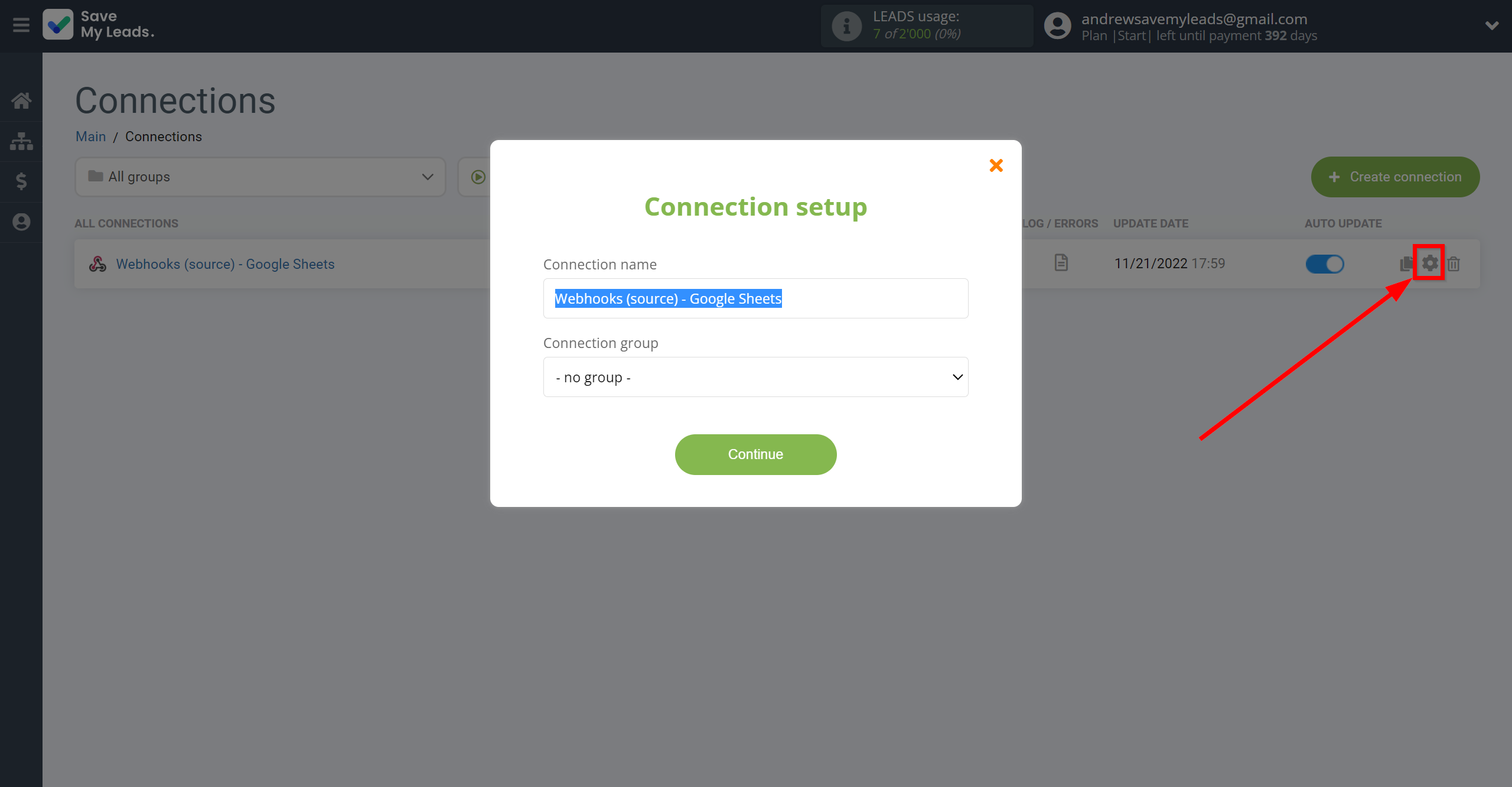
When the slider is in the position as shown in the picture - auto-update works. If you want to disable communication, click this slider.
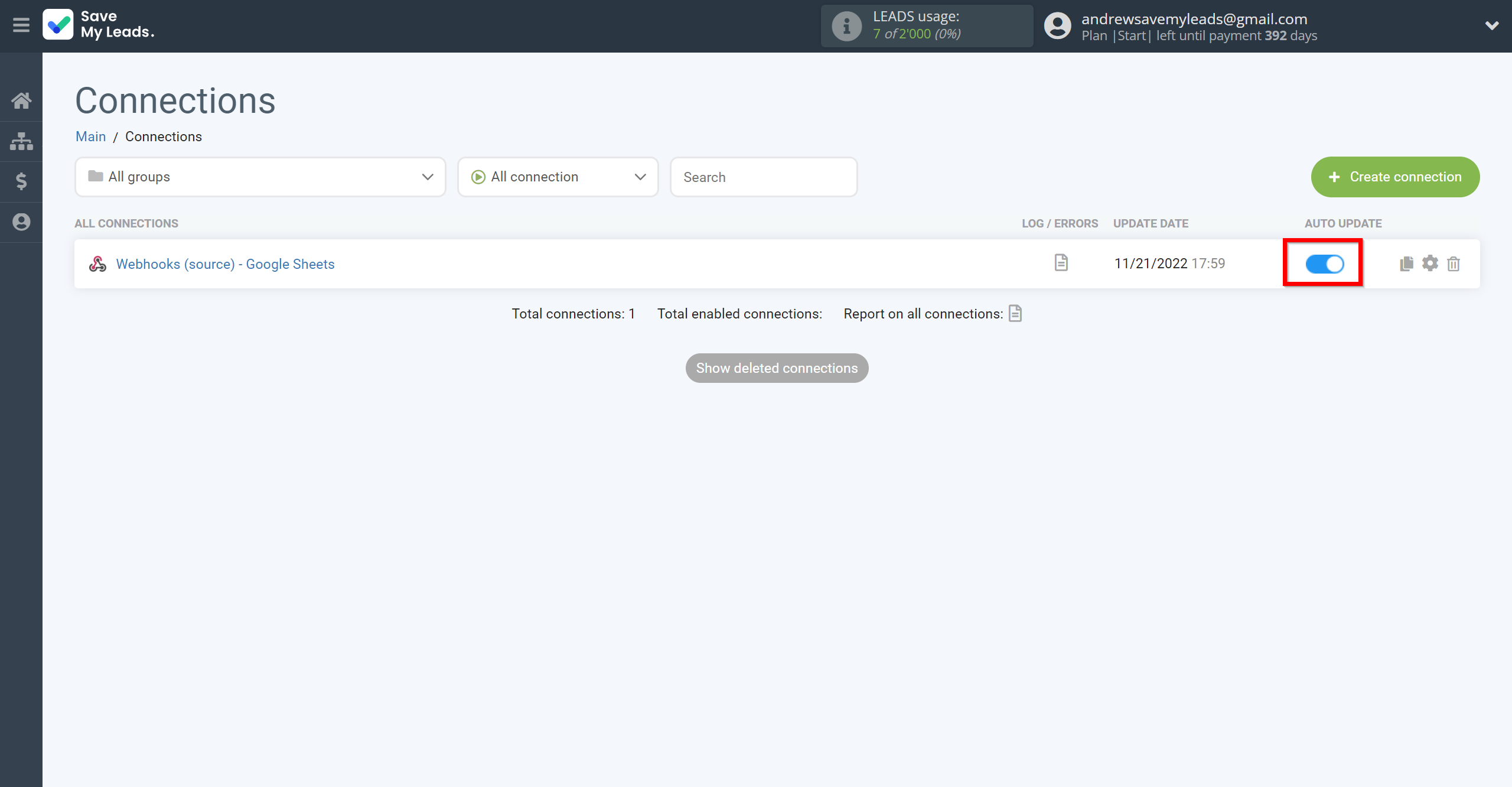
This completes the integration setup between Webhooks and Google Sheets! See how easy it is!?
Now you don't have to worry, SaveMyLeads will do everything on its own!